Found 8 Results
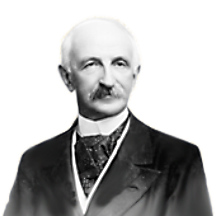
Asser Tobias
Asser was born in Amsterdam in 1838 to a family of jurists. At the age of 22 he obtained his PH.D. degree in Law and was appointed the representative of the Netherlands in the International Commission on Free Navigation on the Rhine River. In 1893, he joined the Netherlands Council of State and 5 years later he served as the Chairman of the State Commission for International Private Law.
He employed much efforts pursuant to the establishment of the International Court of The Hague, in which he served from 1900 in the framework of the International Arbitration Committee and was found to be a most skillful arbitrator and mediator. From 1904 he served as a Minister Without Portfolio in the Netherlands’s Governments until his death in 1913.
Asser was awarded the 1911 Nobel Peace Prize, together with Alfred Fried, in recognition of his extensive activity for the unification of legal ruling among various nations, and for his struggle to insure individual justice and safety in international relations.
Asser believed, that international conflicts can and should be solved in a peaceful way, by an elective adoption of universal laws, that will not upset the legislative authority in each and every state.
Tobias Asser is regarded as one of the forefathers of modern International Law.
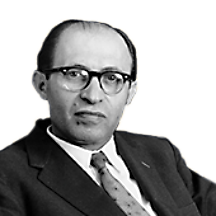
Begin Menachem
Menachem Begin was born in 1913, in Brest-Litovsk, Belarus. He was educated in a traditional-national atmosphere, studied Law at Warsaw University and commenced his public activity at an early age, in the framework of the Zionist-national youth movement, “Beitar”. In 1939, he was chosen as the leader of Beitar in Poland and fulfilled an active role in organizing Aliyah (the immigration) to Israel.
In 1941, Menachem Begin was sentenced to 8 years imprisonment in a Siberian labor camp due to his Zionist activity. However, by the end of that year he was released from prison and joined General Anders’ Polish Army, which arrived in Eretz Israel in May 1942.
In 1943, Menachem Begin took command of the national military organization, the “Irgun” – Beitar Movement’s military wing, and in 1944 declared general rebellion against British rule in Eretz Israel. The rebellion included daring actions against the British, including breaking into Acre Prison and bombing the King David Hotel in Jerusalem which served as the British chief headquarters.
Upon the establishment the State of Israel in 1948, Begin created the Herut Party and was found to be an outstanding parliamentary figure who, for many years, lead the opposition to the Israeli Government. In 1977, Menachem Begin was elected as the seventh Prime Minister of Israel.
The greatest achievement of the Government headed by him was the signing of the peace treaty with Egypt, achieved following the visit to Jerusalem of the Egyptian President, Anwar-el-Sadat. In 1978, Menachem Begin was awarded the Nobel Peace Prize together with Sadat, by virtue of this historic peace treaty.
In August 1983, in the midst of the Lebanon War, Menachem Begin resigned from his position as Prime Minister. He secluded himself in his home, refusing to give any reasons for his resignation. Since his death, in March 1992, his secret has remained a mystery.
Menachem Begin was a sharp witted orator who knew how to excite the public with his enthusiasm and stirring speeches. Throughout his life, he was of the opinion that the world should bear responsibility for the suffering of the Jewish people, as he has deduced from the terrible lesson of the holocaust. His struggle for “Jewish power” emanated from this outlook, which he justified by saying: “Not by right of force, but by force of right”.
Menachem Begin was known for his great affection for Eretz Israel and his concern for the Jewish people. He was a humanist and peace loving person, a wise and modest leader, who remained loyal to his convictions.
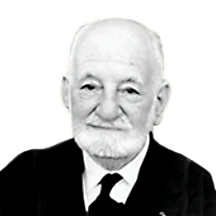
Cassin Rene
Rene Cassin was born in Bayonne, France in 1887. In 1914, he received his Ph.D. degree in judicial, economic and Political Sciences.
On that year, World War I broke. Cassin, who was severely injured in battle, learned a human lesson from his personal suffering, and dedicated his life to the benefit of all people.
In addition to his activity for the benefit of war-disabled and orphans, Cassin represented France in international institutions; initially in the League of Nations and later on in the United Nations. During World War II, Cassin joined De Gaulle’s Government in exile, and handled the arrangement of the status of “Free France”.
In light of the horrors of World War II, Cassin placed his judicial knowledge at the service of the United Nations Commission on Human Rights. His greatest contribution was expressed in the drafting of the majority of the sections of the Universal Declaration on Human Rights.
In 1968, Rene Cassin was awarded the Nobel Peace Prize for his persistent struggle against the oppression and injustice prevailing in the world.
Cassin also acted in the service of his people: he served as the President of the Alliance Israelite Universelle and assisted in the rehabilitation of Jewish communities throughout the world.
Rene Cassin died in 1976 at the age of 89.
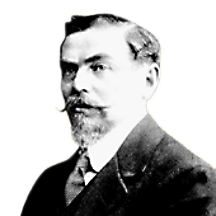
Fried Alfred
Alfred Fried was born in 1864 in Vienna, but spent most of his life in Berlin.
He established pro-peace organizations, and until his death in 1921, wrote many books and essays and published magazines on the topic of peace.
For this lifework, Alfred Fried was awarded in 1911 the Nobel Peace Prize.
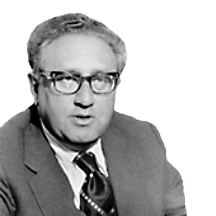
Kissinger Henry Alfred
Henry Kissinger was born in Fuerth, Germany, in 1923 and emigrated to the United States with his family when he was fifteen. He was awarded the Nobel peace prize in 1973, together with the Vietnamese Le Duc Tho, “for his efforts in achieving a peace treaty between South and North Vietnam.”
Kissinger, who was advisor to American presidents Kennedy and Johnson, and Secretary of State in the Nixon and Ford administrations, contributed to the thawing of relations between the Great Powers at the height of the Cold War, and played a role in the reestablishment of diplomatic relations between the United States and China.
In 1974-1975, Kissinger worked unceasingly to open the Middle East peace process. His `shuttle diplomacy’ between the region’s capitals led to the disengagement of forces after the Yom Kippur War and brought about the interim agreements between Egypt and Israel, which later contributed to the signing of a full peace treaty between the two countries.
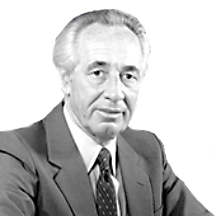
Peres Shimon
Shimon Peres was born in 1923 in Vishneva, Poland, and at the age of 11 settled in what was then Palestine. He was a pupil at the “Geoula” school in Tel-Aviv and later at the Ben Shemen youth village. As a member of a youth group he joined Kvutsat Alumot in the Galiliee.
On the eve of the establishment of the state of Israel, David Ben-Gurion, extremely impressed by the young and talented Peres, recruited him for some missions within the framework of the Hagana. Peres rapidly made a name for himself as a man of administrative and intellectual capacity in whom Ben-Gurion had complete faith and who became his confidant in matters concerning the ministry of defense. Within a few years Shimon Peres became director general of the ministry and later, Deputy Minister of Defense.
Peres devoted himself to ensuring that Israel received modern weapons systems from abroad, and later through the establishment of the Israel Defense Industries, and through a nuclear research infrastructure.
After the Yom Kippur War, Shimon Peres was appointed minister of defense in the first government formed by Yitsshak Rabin, and in this capacity he orchestrated “Operation Jonathan” to free the Israeli hostages being held in Entebbe, Uganda.
Following the election upset that brought Menachem Begin to power, Peres became leader of the defeated labor party. It was the previously Hawkish Peres who categorically declared, that world reality had changed and that a strong Israel was sufficient in order for it not to flinch from the creation of a new peaceful Middle East.
Following the formation of the National Unity government in 1984, he was prime minister for the first two years and then in accordance with the rotation agreement between him and Yitshak Shamir, he then became foreign minister and later minister of finance.
In 1992, with the election victory of the Labor Party led by Yitshak Rabin, Peres was again appointed foreign minister and after many years of conflict between the two leaders, an agreed division of spheres of activity was created which led to cooperation and friendship.
Minister of Foreign Affairs, Shimon Peres , was active on all levels in order to accelerate the peace process. His efforts bore fruit, and after a century of hostility, a dramatic turning point was reached at Oslo with the mediation of the Norwegian foreign minister: talks were held between the Palestine Liberation Organization, headed by Yasser Arafat, and an official Israel, and a declaration of principles was signed prior to a permanent arrangement between the two peoples.
The first steps on the road to an agreed solution of the Palestinian problem led the way to the signing, in October 1994, of a full peace treaty between the State of Israel and the Hashemite Kingdom of Jordan and the slow development of normal relations with the majority of the Arab nations.
This historical dialogue won international acclaim when Shimon Peres, Yitshak Rabin and Yasser Arafat were awarded the 1994 Nobel peace prize for their courage on the way to the desired goal.
The peace process, however, met opposition from radical elements on both sides. Besides increased Arab terrorism, extremist Jewish circles mounted an unbridled campaign of incitement that reached its climax with the assassination of Prime Minister Yitshak Rabin on October 4, 1995.
Shimon Peres’s nomination as prime minister was approved by the Kenesset almost unopposed, and he declared his determination to maintain and accelerate the peace process with all Israel’s Arab neighbors.
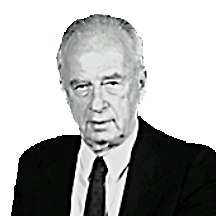
Rabin Yitshak
Yitshak Rabin was born in Jerusalem in 1922. He was a pupil at the Tel Aviv “School for Worker’s Children” and later studied at the Kadoorie Agricultural College. He joined the Palmach in 1940 and participated both as a soldier and commander, in numerous daring operations. In 1947, he was appointed deputy-commander of the Palmach and in 1948, when he was only twenty-six years old, he commanded the Harel Brigade which took part in the fight for Jerusalem.
With the establishment of the Israel Defense Forces, Yitshak Rabin filled numerous posts and in 1964 was appointed the IDF’s seventh Chief of Staff. In 1967, in the Six-Day War, he led the IDF to a brilliant and lightning victory over the Egyptian, Syrian, and Jordanian armies, in which the crowning glory was the reunification of Jerusalem. The speech given by Yitshak Rabin on Mount Scopus, upon receiving an honorary doctorate from the Hebrew University, symbolized and underscored the humanistic heritage that guided the Jewish fighting man and woman.
Rabin retired from the army in 1968, to become Israel’s ambassador in the United States. In 1973 He was elected to the Knesset and served for a short time as minister of labor in Golda Meir’s government.
In the wake of the military disaster of the Yom Kippur War, Golda Meir resigned and Yitshak Rabin was rocketed to the Prime Minister’s Office. It was during his term of office that Israel signed the Disengagement of Forces Agreements with Egypt and Syria.
Rabin resigned the premiership in 1977 and in 1992, when the Labor Party returned to power, he returned as Prime Minister, vowing to push forward the peace process with the Arab nations, that had begun at the 1991 Madrid Conference.
The Rabin’s government’s most significant achievement was the historic turning point in the relations between Israel and the Palestinians. Total hostility changed to open negotiations which led, in September 1993, to the famous handshake between Yitshak Rabin and Yasser Arafat in Washington, and to the signing of the Declaration of Principles which led the way to a five-year interim agreement prior to a permanent arrangement between Israel and the Palestinians.
The first steps on the road to an agreed solution of the Palestinian problem led the way to the signing, in October 1994, of a full peace treaty between the State of Israel and the Hashemite Kingdom of Jordan and the slow development of normal relations with the majority of the Arab nations.
This historical dialogue won international acclaim when Yitshak Rabin, Shimon Peres and Yasser Arafat were awarded the 1994 Nobel peace prize for their courage in surmounting all obstacles and achieving the desired goal.
The peace process, however, met with increased Arab terrorism and intense opposition from both radical religious and right-wing circles and the opposition parties in Israel.
On Saturday evening, November 4, 1995, at the conclusion of a huge rally in support of the peace process, a member of a right-wing religious group infiltrated the ring of security men around the prime minister and fired three fatal shots at him.
Deep national mourning, the like of which had never previously been experienced, enveloped the citizens of Israel. There was great sorrow at the loss of a courageous and beloved leader, a fighter who had led his people in times of war, and a statesman who had had the wisdom to lead them towards peace.
Rabin’s death revealed the depth of identification of the young people of Israel with his straightforward personality and his ‘sabra’ image, and their belief in, and desire for, peace.
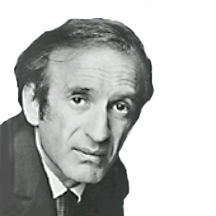
Wiesel Elie
Elie Wiesel was born in the town of Sighet, Romania, in 1928. When he was 15 years old, the Wiesel family was sent to a German concentration camp. Both parents, as well as a younger sister, perished in the camps, but Wiesel and two other sisters managed to survive.
At the close of World War II, Elie Wiesel went to France as a refugee and began studying at the Sorbonne University in Paris. In 1948, at the age of 19, he arrived in Israel as a military correspondent for a French newspaper, in order to cover the War of Independence.
He went on to become a foreign correspondent for the Israeli daily “Yedioth Ahronoth” and thereafter moved to New York, where he joined the staff of the Yiddish paper “Forverts”. Wiesel served as professor of Jewish Studies at New York university and from 1976, professor of humanities at Boston University.
After a self-imposed, ten year period of silence, Wiesel described his experience as a youth in a concentration camp in his book “Night”, published in 1956. The book first appeared in Yiddish, but was later translated into many other languages. Since then, he has written another 30 books and gained a worldwide reputation.
Elie Wiesel was awarded the Nobel Peace Prize in 1986. According to the Prize committee, “Wiesel has given us not only an eyewitness account of what happened, but also an analysis of the evil powers which lay behind the events. His main concern is the question of what measures we can take to prevent a recurrence of these events.”
Elie Wiesel is a fighter for human rights. His name has been connected with humanitarian causes all over the world, such as: the struggle of Soviet Jewry, the Indians in Nicaragua, the civil war in the former Yugoslavia, the Kurds, victims of Apartheid in South Africa and famine victims in Africa. Many of the numerous articles he has published are concerned with issues of oppression, and as a lecturer, he is in demand worldwide. Furthermore, Wiesel has served as advisor to presidents of the United States and France and to groups that deal with universal, ethical issues.
In his writing and his work, Elie Wiesel has not attempted to garner pity for the victims or the survivors of the holocaust. Rather, he has tried to combat the apathy to evil that makes us accessories to crimes against humanity. He wants to awaken the conscience of each of us. As he once said, “You can get out of Auschwitz, but Auschwitz can never get out of you.”

free text
Select a Nobel category:
- Chemistry
- Economics
- Literature
- Medicine
- Peace
- Physics
Select first letter of winner's name:
- A
- B
- C
- D
- E
- F
- G
- H
- I
- J
- K
- L
- M
- N
- O
- P
- Q
- R
- S
- T
- U
- V
- W
- X
- Y
- Z
Search Results
Found 0 Results
No search results

region on map
